We may earn money or products from the companies mentioned in this post. This means if you click on the link and purchase the item, I will receive a small commission at no extra cost to you ... you're just helping re-supply our family's travel fund.
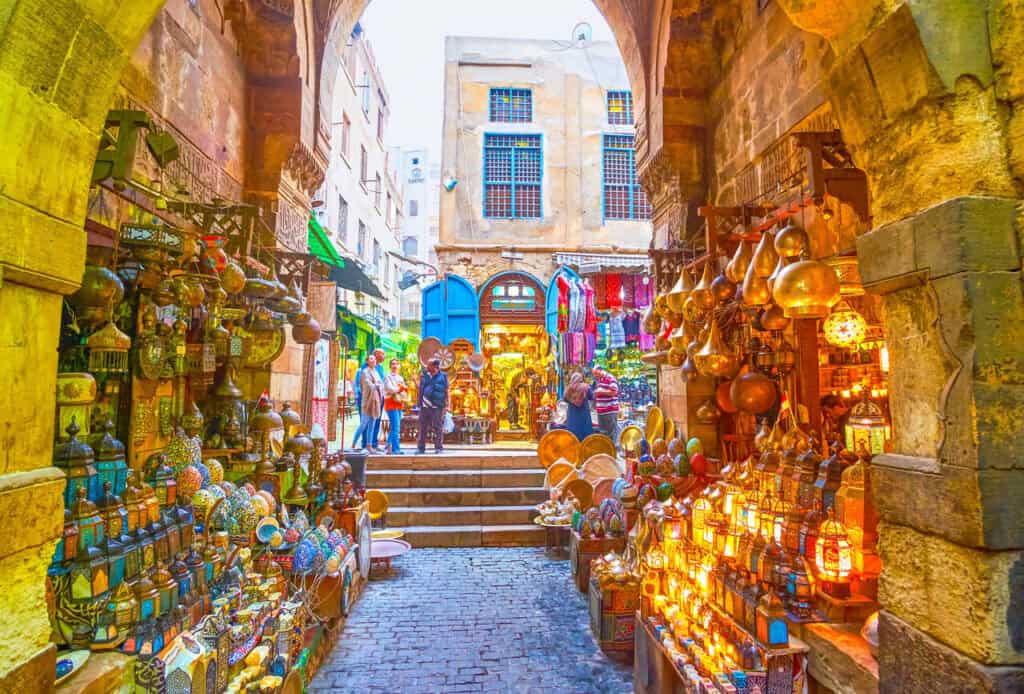
If you love collecting souvenirs that actually mean something, you’ll want to skip the airport gift shops and head to real markets where local makers still shape, paint, and weave by hand. The right market can turn shopping into an experience; one that smells of spices, echoes with chatter, and tells you more about a place than any guidebook. Here are 12 markets around the world that blend authenticity with the energy of souvenir hunting, each one worth getting a little lost in.
1. Grand Bazaar, Istanbul
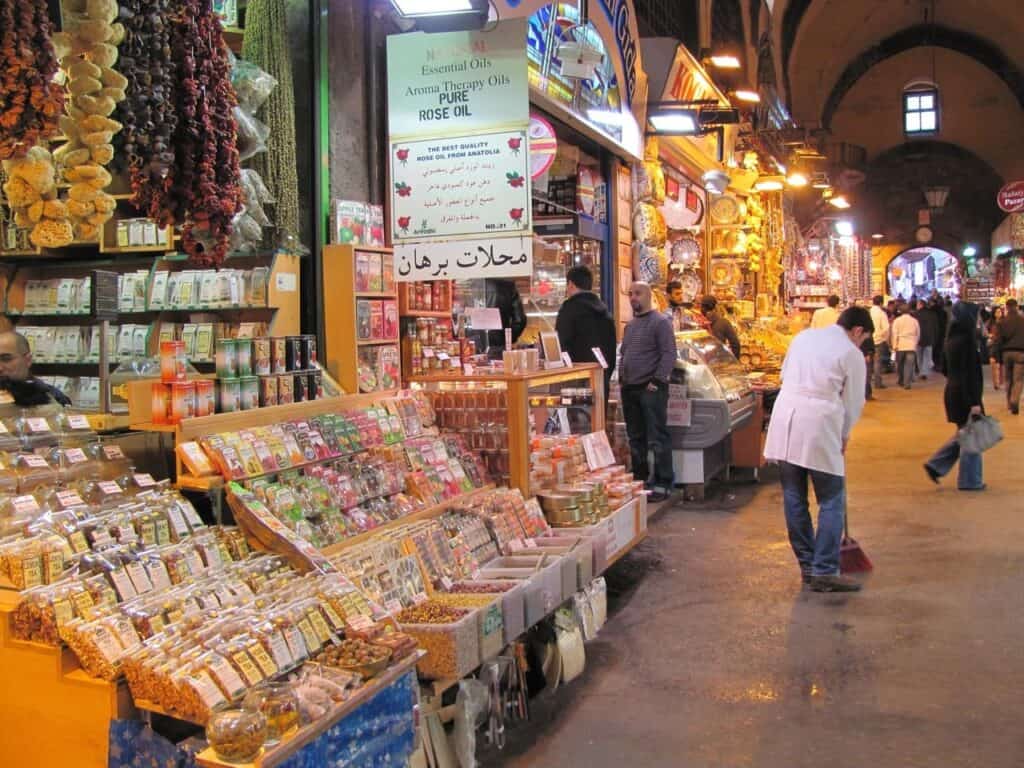
You can’t talk about souvenirs without mentioning the Grand Bazaar. This centuries-old maze of stalls bursts with ceramics, mosaic lamps, leather bags, and the famous blue-glass evil eye charms. It’s easy to get caught up in the color and noise, but that’s the fun part—you can wander for hours and still stumble onto something new. Many items here are genuinely handmade, though mass-produced copies exist, so take your time and ask where pieces come from. Bargaining is expected, and even small talk can help you score a fair price. Go early to avoid crowds and focus on shops that still feel like workshops rather than showrooms.
2. Souks of Marrakech, Morocco
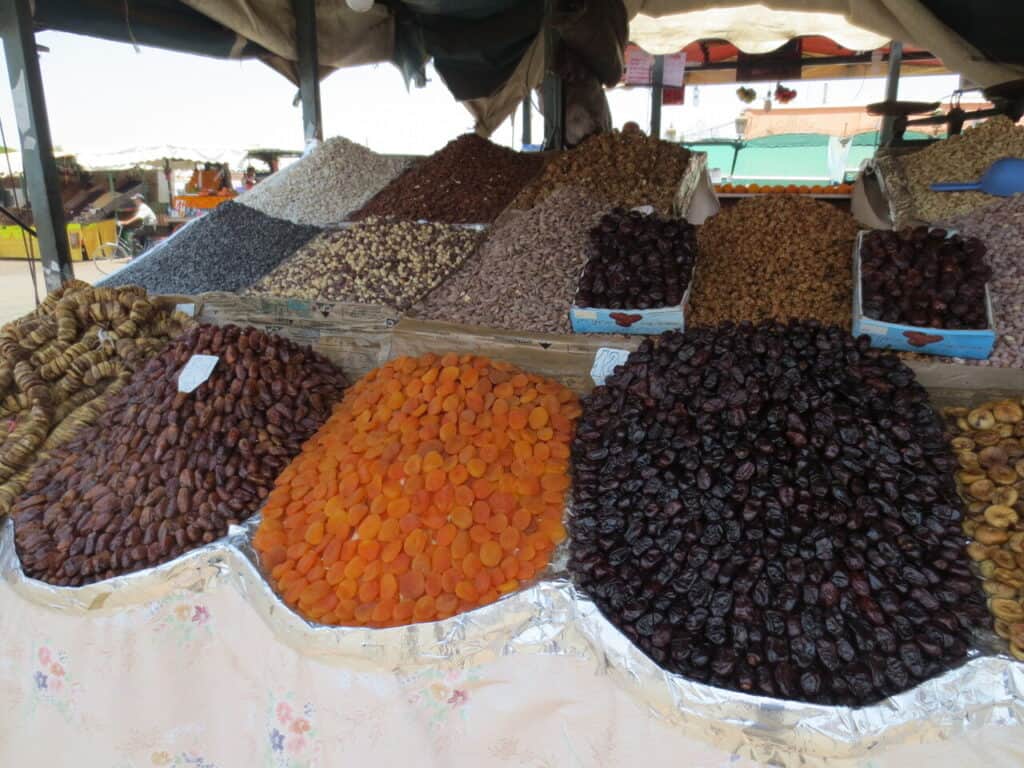
The Medina’s souks in Marrakech are a sensory overload in the best way. You’ll pass piles of saffron, racks of lanterns, and tables stacked with hand-tooled leather bags and carved wood boxes. The crafts here are part of Morocco’s heritage, and many artisans still work in small family stalls. Still, not everything stamped “handmade” really is, so test quality and compare prices as you go. Bargaining is part of the culture; do it with humor, not pressure. When you find a piece that feels right, whether it’s a silver bracelet or a woven rug, it’ll carry the scent and spirit of the Medina home with you.
3. Khan el-Khalili, Cairo
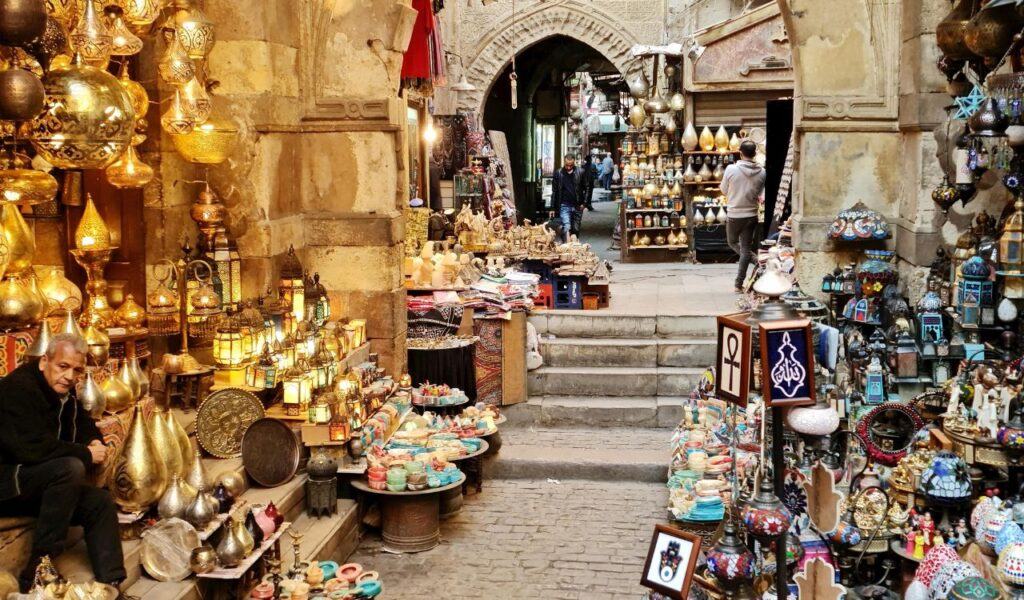
In Cairo, Khan el-Khalili is where history and commerce meet. The narrow alleys are lined with brass lamps, copper trays, embroidered scarves, and piles of spices that perfume the air. It’s easy to imagine traders doing business here hundreds of years ago. Some vendors do sell factory goods aimed at tourists, but if you look carefully, you’ll find authentic handmade work that reflects Egypt’s rich craft tradition. Ask questions about how things are made, and don’t rush; half the experience is wandering, talking, and soaking up the atmosphere. What you bring back isn’t just an object but a slice of Cairo’s daily life.
4. Marché aux Puces de Saint-Ouen, Paris
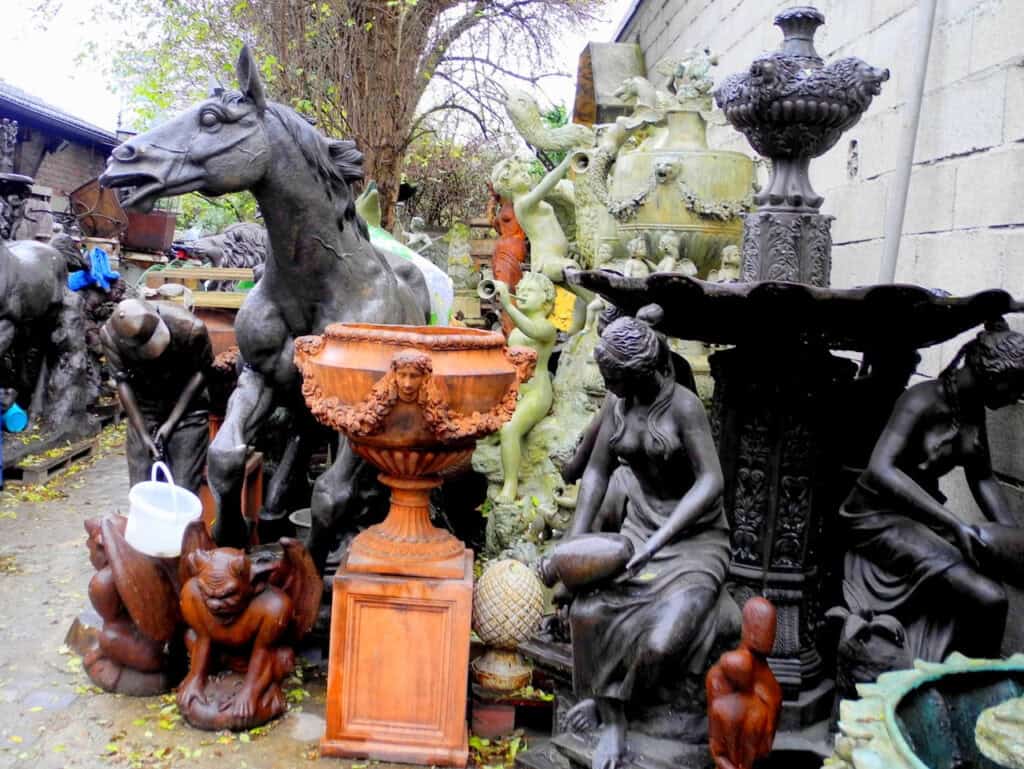
Just outside central Paris, this sprawling flea market is heaven for anyone who likes souvenirs with character. Instead of magnets and T-shirts, you’ll find vintage posters, antique furniture, records, and art prints that carry real stories. Prices range widely, but browsing is free and endlessly entertaining. You can chat with vendors, hear how they sourced their items, and even negotiate if you’re serious about buying. Because some things are genuine antiques, shipping and customs might require planning, but the reward is a souvenir you’ll actually use or display not just stash in a drawer.
5. Chatuchak Weekend Market, Bangkok
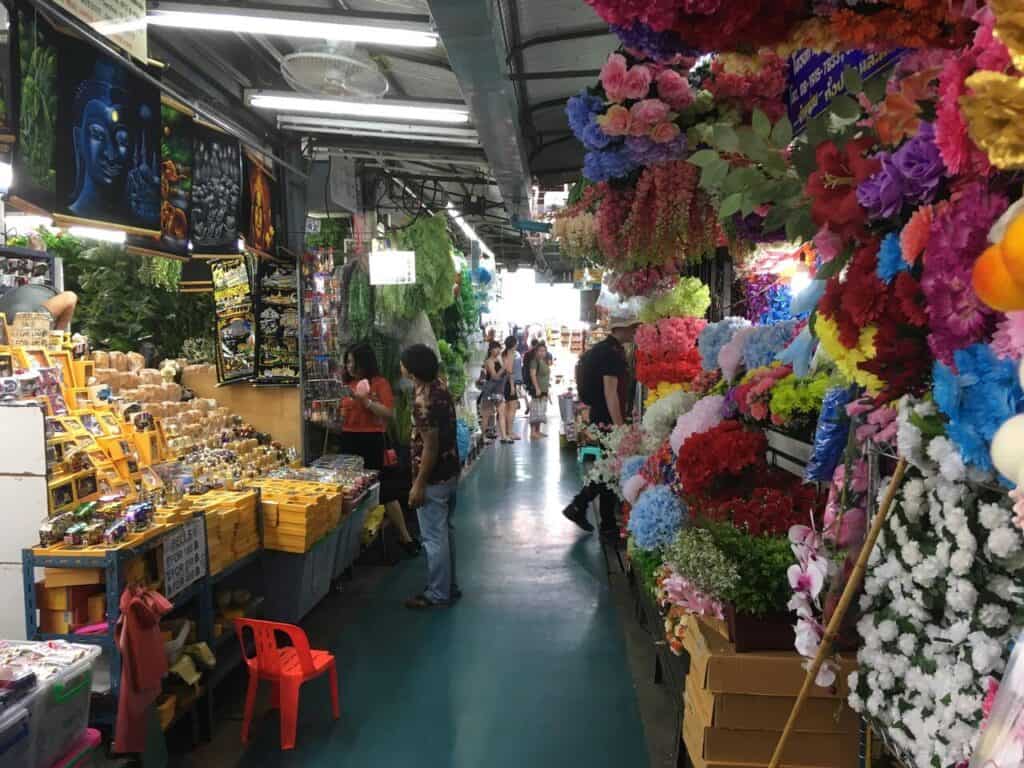
Chatuchak is more like a city than a market, with thousands of stalls packed into winding alleys. You can find everything from handwoven bags and pottery to modern crafts and clothing. The trick here is to explore beyond the main tourist aisles; many local designers and small makers set up deeper inside. Bring cash, water, and comfortable shoes you’ll need them. Some stalls do sell factory items, so look for handmade finishes and natural materials. If you enjoy the thrill of discovery and don’t mind a bit of chaos, this market rewards patience with great finds and unbeatable variety.
6. Panjiayuan Antique Market, Beijing
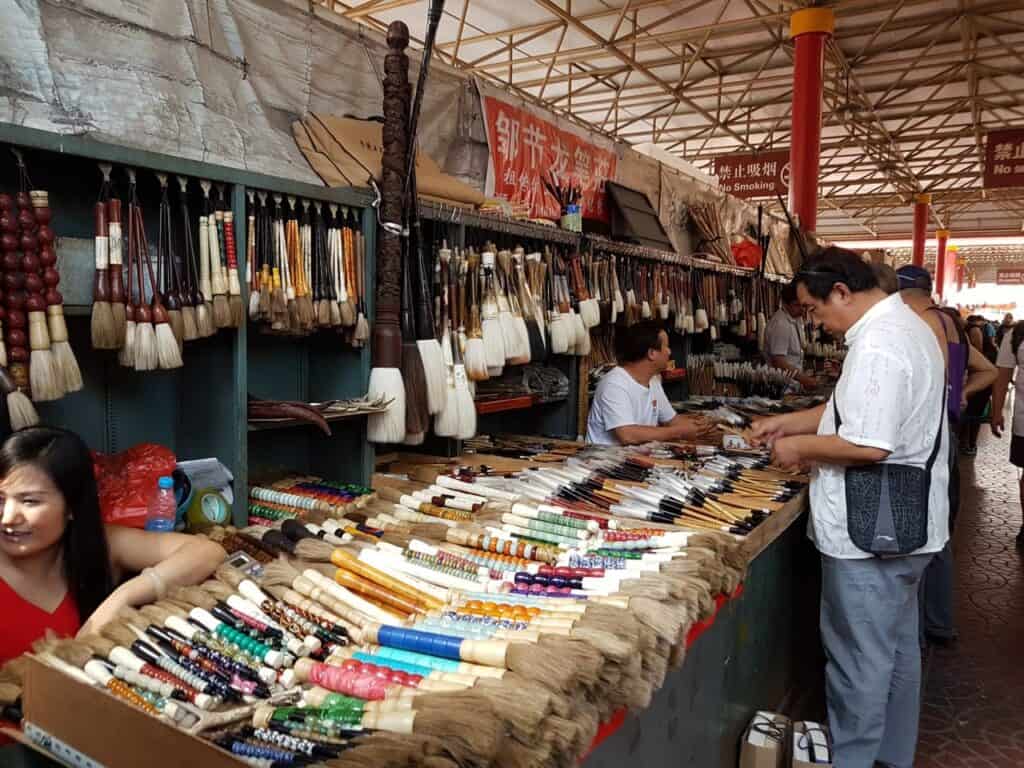
Panjiayuan is Beijing’s best-known antique and craft market, famous for its size and variety. You’ll see jade carvings, calligraphy brushes, ethnic crafts, and even old propaganda posters. The mix is fascinating: part cultural history, part treasure hunt. Some vendors sell replicas, so if authenticity matters to you, ask for documentation or buy from shops that display artisans working. Early mornings are ideal, when collectors and artists set up before the tourist rush. You won’t always know what’s real or not, but exploring here is half the fun, and you’ll leave with something that feels distinctly Chinese.
7. Albert Cuyp Market, Amsterdam
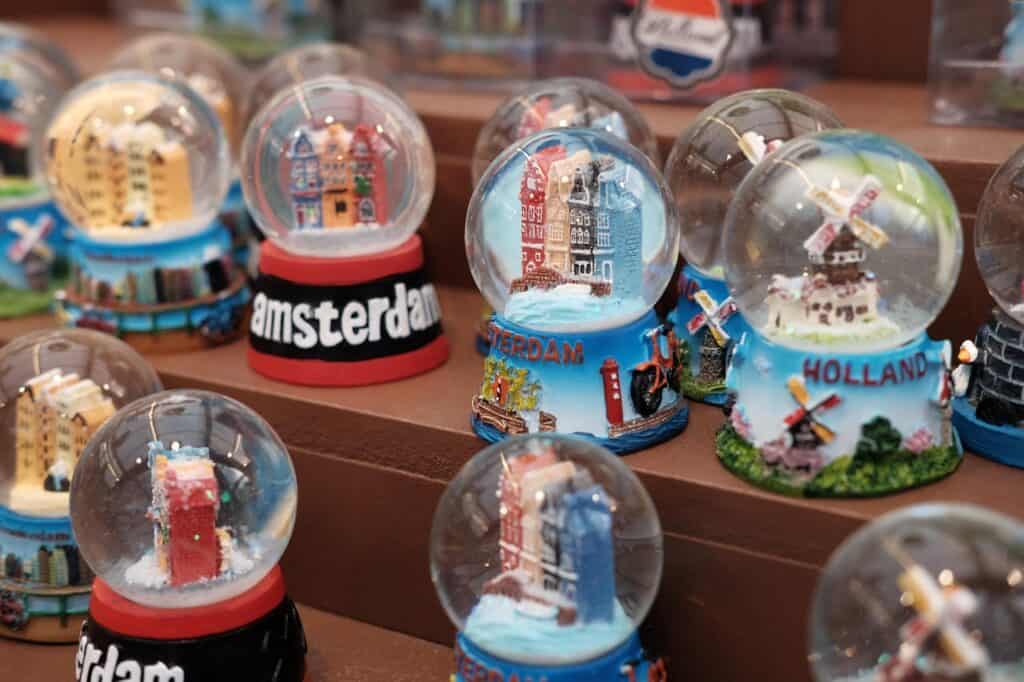
This long street market in Amsterdam blends local life with lighthearted souvenir shopping. You’ll find Dutch cheese, fresh stroopwafels, fabric, flowers, and a few small craft stalls tucked between. What makes it special is that locals actually shop here; it’s not a tourist trap. Prices are fair, and conversations are easy-going. For meaningful souvenirs, skip the generic mugs and focus on handmade wooden toys, Delft-style ceramics, or artisanal treats you can pack home. It’s a relaxed way to experience Amsterdam’s neighborhood rhythm while finding something you’ll actually enjoy later.
8. Izmailovsky Market, Moscow
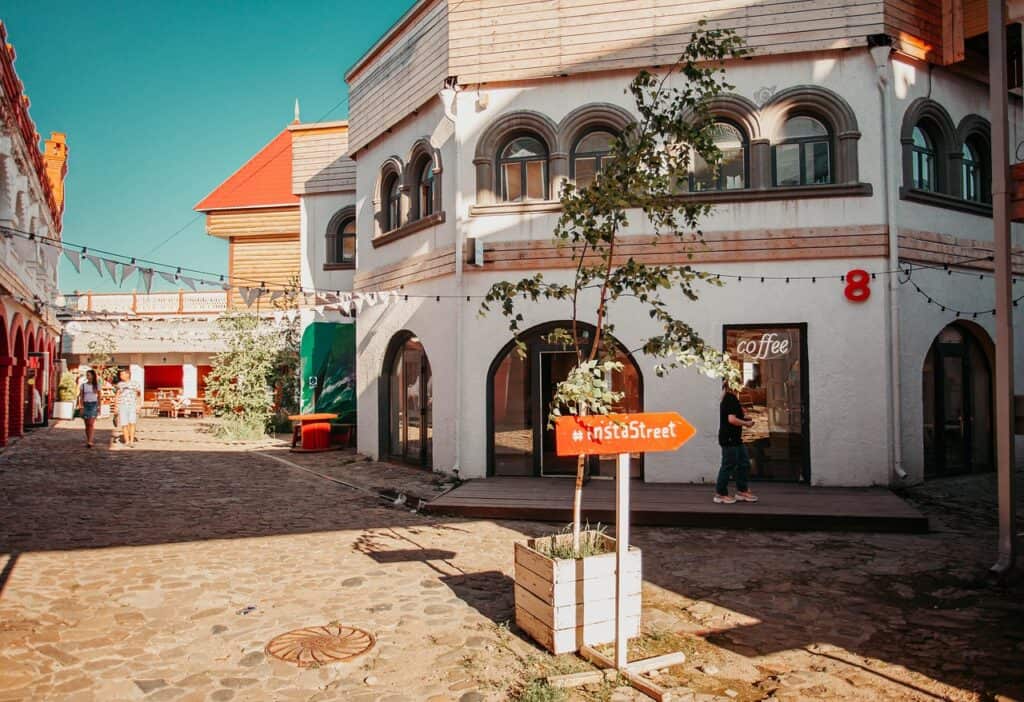
At Izmailovsky Market, souvenir shopping doubles as a crash course in Russian folk art. The wooden towers and bright stalls look like a fairy-tale fortress, and the crafts match that mood: nesting dolls, lacquer boxes, amber jewelry, and painted icons. Some items are mass-made, but plenty of sellers represent real artists. The best approach is to talk with the vendor; ask who made the piece or how it’s painted. Prices are usually negotiable, and quality varies, so take your time. Even if you don’t buy much, walking the market feels like stepping into a living museum of traditional Russian design.
9. Rialto Market, Venice
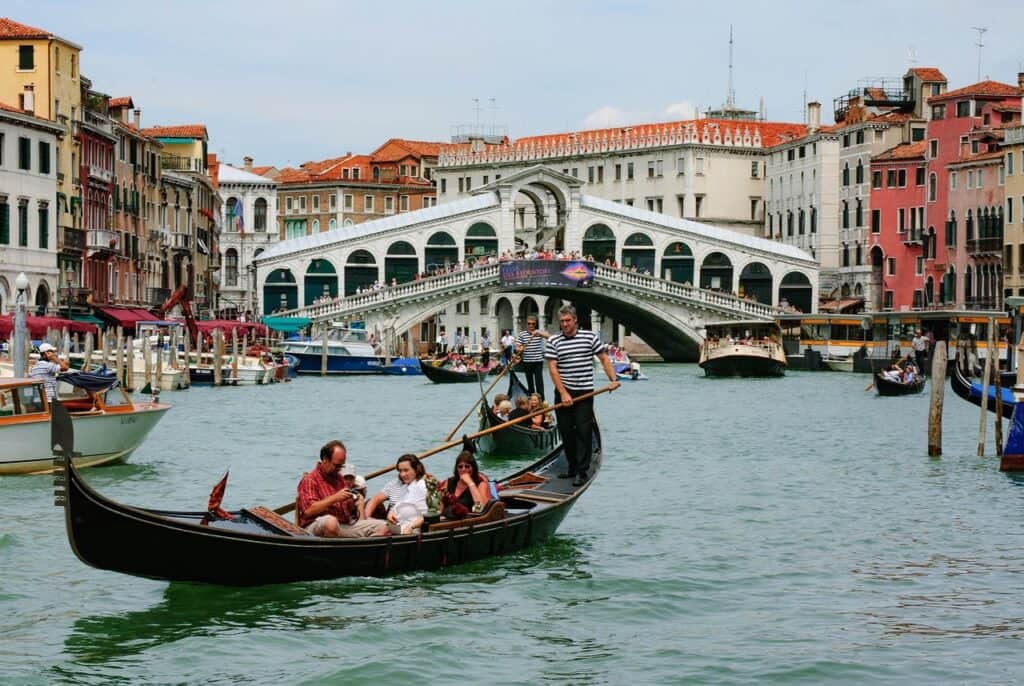
Venice’s Rialto Market might be best known for its seafood and produce, but nearby shops and stalls sell beautiful Murano glass and handmade masks. You’ll see craftsmen shaping molten glass or painting details by hand, a reminder that some traditions here are centuries old. Not every stall is authentic, so look for studios that display tools or offer certificates for glasswork. Prices can be high, but you’re paying for artistry, not mass production. Bring something back from here and it will actually say “Venice” without needing the word printed on it.
10. Medina of Fes, Morocco
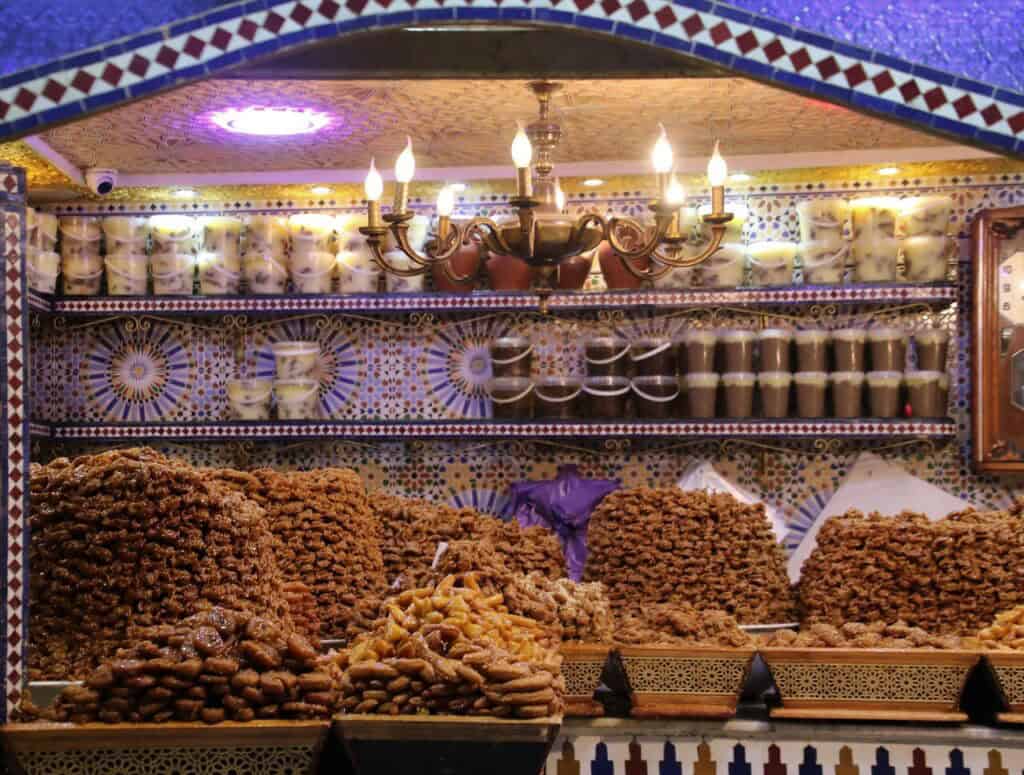
Fes feels like a time capsule, and its markets are some of the oldest in North Africa. You’ll walk past tanneries where leather is still dyed in open pits, shelves stacked with colorful ceramics, and artisans hammering metal in tiny workshops. It’s busy and sometimes chaotic, but that’s the charm. As with Marrakech, authenticity varies by stall, so learn to spot real handmade work by its small imperfections and natural feel. Bargaining is expected but friendly. A purchase here maybe a leather journal or a hand-woven rug carries the weight of real craft and history.
11. Ayothaya Floating Market, Thailand
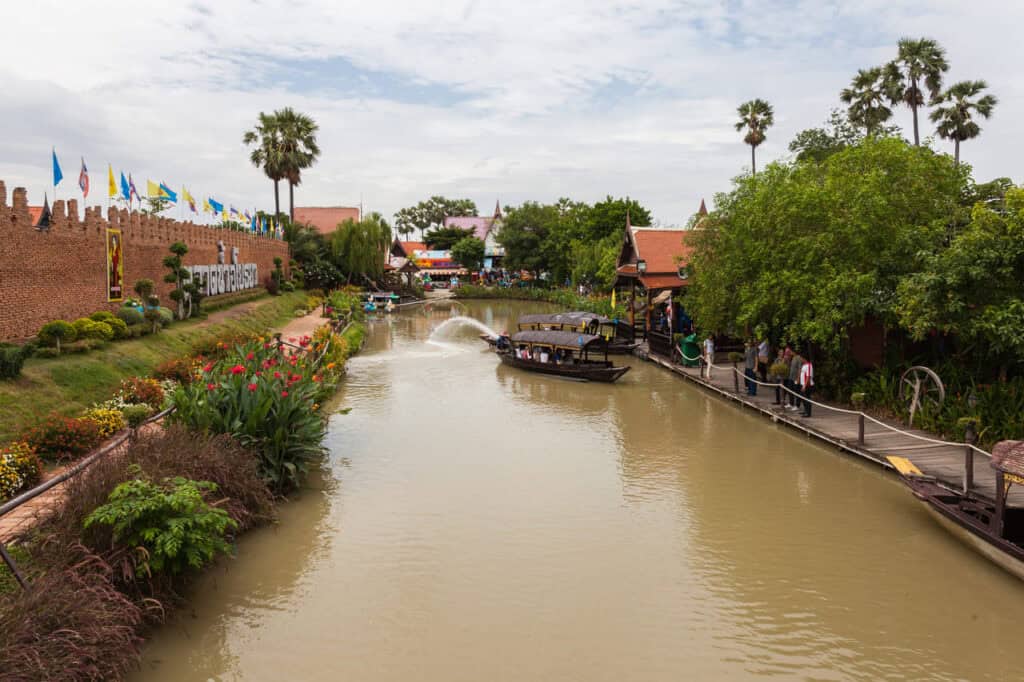
This floating market combines the novelty of boats with the charm of traditional Thai crafts. You can drift between stalls selling local snacks, carved wood souvenirs, and handmade textiles. It’s tourist-friendly but still retains local flavor, especially if you visit on quieter weekdays. Some items are imported, so ask vendors where things are made and check the craftsmanship. Even if you don’t buy much, it’s worth coming for the experience alone: floating through a marketplace where trade happens over water, surrounded by food scents and the sound of paddles tapping the canal.
12. Feira da Ladra, Lisbon
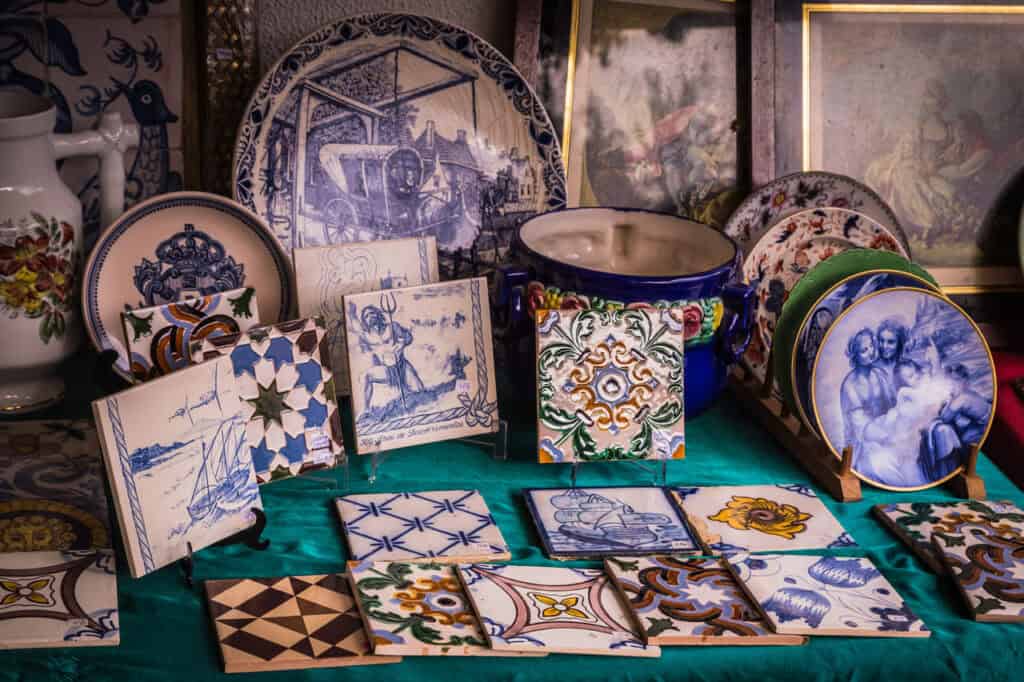
Feira da Ladra, Lisbon’s beloved flea market, is packed with vintage finds, handmade tiles, and quirky antiques. Locals come here to sell and swap, so it feels more neighborhood than tourist show. You’ll have to dig a bit—treasures hide among odds and ends but that’s the fun. Cash is king, and vendors usually appreciate polite bargaining. Look for azulejo tiles or small ceramics as easy-to-pack souvenirs. It’s an authentic experience that leaves you with something personal, not mass-produced.